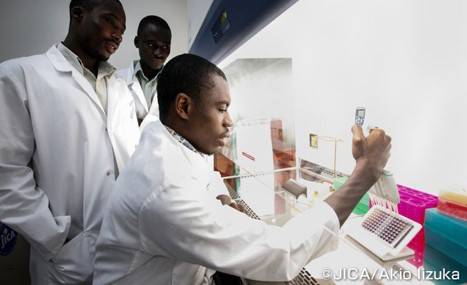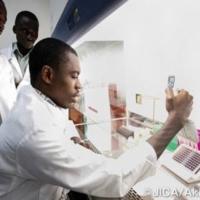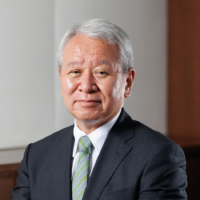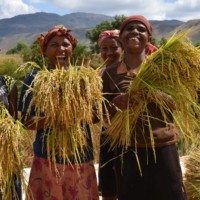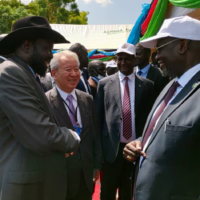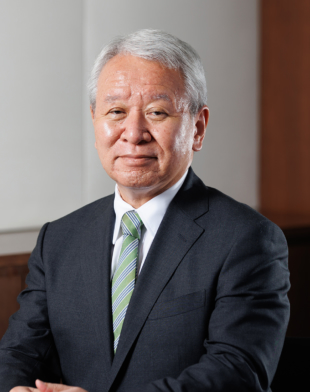
Today, the world confronts multiple crises, including those brought about by the COVID-19 pandemic, the war in Ukraine and climate change. African societies and their economies have been severely impacted by these crises. The international community must support and work together with African partners so that the continent can “Build Back Better.” To this end, I would like to share three concepts that I believe are key to Africa’s development. They are resilience, development and solidarity.
The first concept is resilience. We cannot entirely avoid future crises nor predict when they will occur. However, we can better prepare for them by enhancing our capacity to withstand external shocks, mitigate damage and build back better in line with the Sendai Framework for Disaster Risk Reduction, adopted by the U.N. in 2015.
These ideas of resilience are closely linked with the Japan International Cooperation Agency’s guiding principle of human security. Human security envisions a world where everyone can live in security and with dignity, free from fear. To achieve this goal, it is critical that we empower individuals, organizations and societies so that we can not only survive crises, but also emerge stronger from them.
In the face of the COVID-19 pandemic, Africa has demonstrated tremendous strength. As a leader in public health, the Africa Centres for Disease Control and Prevention (Africa CDC) exercised leadership in responding rapidly to the pandemic and building capacity across the continent. Several medical research institutions, including the Noguchi Memorial Institute for Medical Research in Ghana and the Kenya Medical Research Institute, played a crucial role in containing the virus and strengthening regional surveillance and infection control.
A number of African startups and young entrepreneurs are applying innovative approaches and digital technologies to social issues, including the COVID-19 pandemic. In Tunisia, for example, a data analytics firm has developed a system to analyze the genome of COVID using artificial intelligence, supporting the Tunisian Ministry of Health’s response to COVID-19. We will continue to assist these emerging businesses across Africa in their expansion.
These are just a few of the many examples of Africa’s strength and resilience. But a key question is how to continually enhance that strength and resilience to meet new challenges.
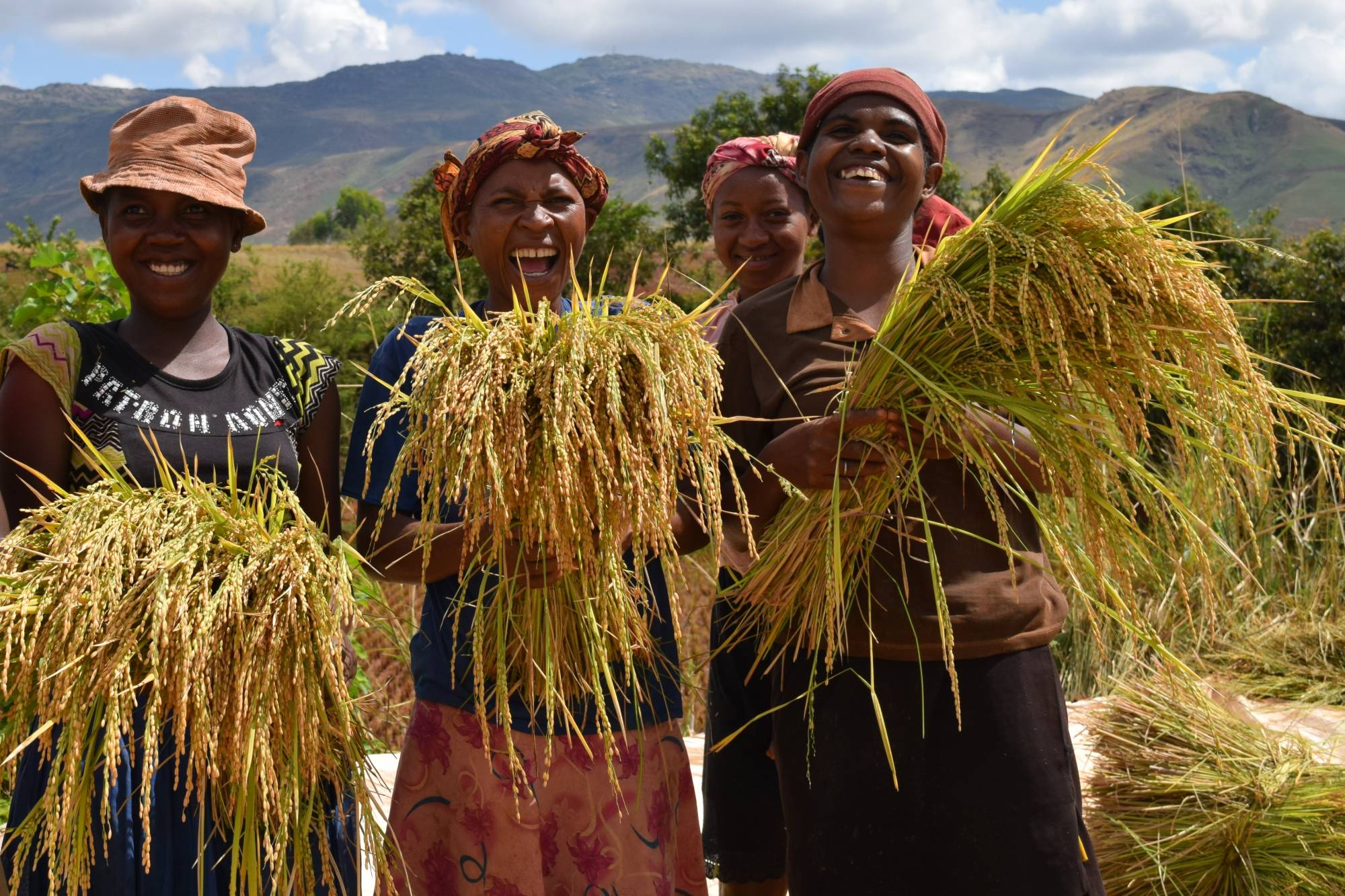
This leads to the second concept – development. When a crisis happens, humanitarian action is the first response to meet urgent needs. However, to prepare for and better cope with future crises, a long-term development approach to build resilient societies and economies is required. Regarding COVID-19, several African medical institutions played important roles in responding to the pandemic. Their successful interventions were the result of many years of hard work, capacity building and cooperation with development partners.
The recent food crisis in Africa also highlights the importance of this kind of long-term, comprehensive development approach. While the disruption of food supply chains from outside of the continent seems to be the direct cause of the crisis, weak domestic agricultural production also underlies this problem. Improving food production cannot be achieved overnight — it requires a long-term vision and continued effort toward that vision. The Coalition for African Rice Development is an admirable example of how concerted efforts by various actors toward a common vision can bring tangible results. CARD, launched on the occasion of TICAD IV in 2008, is a comprehensive initiative to support the efforts of African countries in doubling local rice production within 10 years. CARD has achieved its first target and is aiming for further goals. To achieve this commendable feat, CARD supported the establishment of national strategies and mobilized resources to invest in people, technologies and infrastructure.
As those examples show, development efforts play a critical role in enhancing resilience.
My third and final point is solidarity. Confronted with the crisis in Ukraine, the international community has demonstrated strong solidarity in protecting and supporting those who are affected by the war.
While supporting Ukraine, we must not forget about Africa. Now is the time that we, as an international community, must also come together to help Africa build back better from multiple crises and progress toward meeting the U.N. sustainable development goals.
In strengthening our partnership with Africa, we should center our solidarity on Africa’s own vision for the future and the role played by African institutions in making this vision a reality. Agenda 2063, Africa’s long-term development vision, as well as such institutions as the African Union Development Agency-New Partnership for Africa’s Development and the Africa CDC are all prime examples of African-led development. The international community should respect Africa’s leadership and ownership of its own development process.
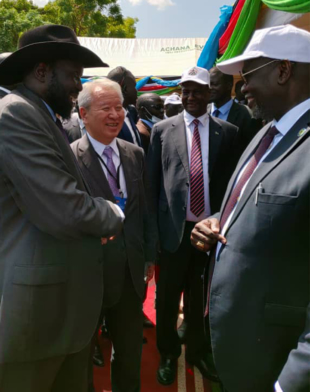
The solidarity we foster should not be underpinned by an antiquated “aid” model, but rather by “cooperation” based on mutual trust between African countries and the international community. To build that mutual trust, development partners should deepen their appreciation of African history, traditions and perspectives. An open, productive and respectful dialogue can be continued in a variety of fora, including the eighth Tokyo International Conference on African Development taking place on Aug. 27 and 28 this year.
In respect of solidarity, I would like to touch upon my recent trip to Africa. I selected South Sudan as my first destination for a visit following my reappointment as the president of JICA in April, because I was eager to see the final result of our peace project, a bridge across the Nile, named the Freedom Bridge.
The Freedom Bridge connects the east and west sides of the Nile River in Juba. This project began 10 years ago with financial support from JICA, and was completed this year. During that 10-year period, work on the Freedom Bridge had to be suspended as many as three times; twice due to political turmoil and once due to COVID-19.
Despite encountering such difficulties, our staff, consultants and contractors showed unwavering determination to complete the project, and thereby built a lasting symbol of peace and independence in South Sudan.
As I attended the bridge completion ceremony with President Salva Kiir and First Vice President Riek Machar, I again realized that it is national solidarity upon which a peaceful society is founded. Also, I was reminded that Japan and JICA can, and should, take the lead in making efforts to build a peaceful and sustainable world through global solidarity.
To conclude, I would like to emphasize that TICAD 8 will provide a significant opportunity to demonstrate solidarity between Africa and the international community in today’s world of multiple crises.



